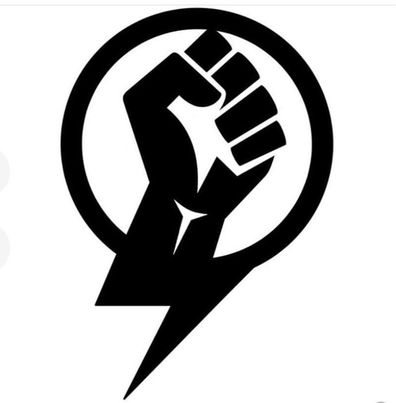Vision had the pleasure of interviewing the members of York’s Anti-Racism Working Group, a group dedicated to promoting anti-racist rhetoric, a more diverse curriculum and championing the voices of racially minoritised individuals at the University of York.
Q: First, shall we introduce the group, how it was founded and its core members?
The group was co-founded by Mel Williams, James Lewis and Alicia Easley when we were completing our MA in Applied Human Rights (CAHR), with support from Dr Alice Nah, Dr Susan Forde and Dr Jeremy Moulton from the Centre for Applied Human Rights and Politics Departments.
The Working Group is comprised predominantly of postgraduate research students and staff. We organise through termly meetings and our social media pages (Instagram and Facebook).
We founded the group in the aftermath of the protests following the murder of George Floyd in May 2020. We were surprised at the lack of collective organisation on campus around issues of race and (anti)racism, and so decided to set up the working group centred around Angela Davis’ idea that it is “not enough to be non-racist, we must be anti-racist”.
Q: That’s great! Can you introduce the aim of this group?
Our primary aims are:
- To share resources on how to be anti-racist and build a community to have conversations and ask radical and salient questions.
- To encourage and challenge the University to decolonise its curriculum and shift from a ‘Western-Centric’ approach to teaching and knowledge production.
- To work alongside departments to promote this work and to support the experiences of racially minoritised staff and students, as well as address structural inequalities.
- To ensure that the voices of black and other racially minoritised people are at the forefront of this work, and that we are listened to across the University.
Q: Do you think that we have a problem with racism at the University of York and in the City of York?
Yes, we feel that both the University of York and the City of York have issues with racism, which mirror the context across the entire country and other Higher Education institutions.
Our view on this is shaped by the experiences of students and staff, and evidence that structural inequalities are at play.
Members of our group have highlighted instances where they have experienced racially discriminatory behaviour and abuse on campus, which has driven us to begin work on how we can better support those who experience hate crimes.
Furthermore, research conducted by Universities UK and the National Union of Students (2019) demonstrates that there is a 13% attainment gap “between the likelihood of white students and students from racially minoritised backgrounds getting a 1st or 2:1 degree classification”. Those from racially minoritised backgrounds are also more likely to drop out of university, and less likely to gain employment opportunities if they finish their course (Office for Students, 2018).
These statistics highlight how racial discrimination in particular influences the student journey of those from non-white backgrounds. They also illustrate other issues that those from black and other racialised backgrounds disproportionately face whilst attending Higher Education institutions.
Q: Do you think the University has done a good job tackling such issues?
The University of York appears to share our concerns with racism and racial inequalities, as stated on their website: “Racism, racial injustice and racial inequalities exist in our everyday lives and in wider society; they also exist within higher education and within our University. Racism must be fought by everyone”.
We, therefore, know that our objectives sit within the opinions of the broader University regarding the issue of racism, and are thus supported by various members of staff including the Inclusive Learning Department.
Lastly, many prospective students will notice that the University of York is a self-proclaimed anti-racist organisation and be attracted to attend the University, viewing it as a safe space. However, we feel that issues such as the pay deficits faced by racially minoritized staff and racially motivated hate crimes experienced by students in the city tell a different story.
In short, anti-racist work is happening but there’s always more to be done.
Q: That’s great! And how does the Anti-Racism Working Group work to help this further?
In addition to what the University says about anti-racism, we think that it is really important to look at the broader context that racism operates in within the city. This is why we work with local activist groups to share knowledge, work within the community and, hopefully, promote our anti-racist objectives.
As part of our education, we seek to be critical of our values and the consequences of our actions. We believe that this includes how our tuition fees are spent and wholeheartedly support UCU’s campaign to make sure our money is spent ethically and that we get value for money. We perceive the strikes as an opportunity for staff and students to unite together against racism, sexism, ableism and classism – to develop stronger relationships and think critically about how the University can serve the public good.
We organise events on issues that are relevant to racially minoritized groups, such as ‘Navigating racism in the workplace’, ‘Black Lives Matter and Activism in Southern Africa’, ‘Anti-Racism and Decolonial Work in a University Context: What does it really mean?’, with both internal and external speakers. Our events and activism are centred around issues that are important to our members. We are guided by necessity, context and knowledge from leading decolonial scholars and activists. We also see the value of partnerships, so co-hosting events with other groups is something we are very open to, especially so that we can address cross-cutting and intersectional issues.
Q: Excellent! And finally, how can any newcomers join this group?
Newcomers can join by email (antiracismworkinggroup@gmail.com) or through our social media pages, Facebook and Instagram, and are welcome to attend our events which we promote on these social media pages.
